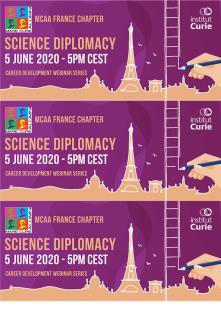Marta Agostinho
Marta Agostinho is the Coordinator of EU-LIFE, an alliance of European life science based research institutes that aims at promoting excellence in research and acting as a voice for research institutes in the European policy landscape. As Coordinator of EU-LIFE, M. Agostinho oversees the implementation of the strategy of the alliance and leads the science policy area. She is also expert evaluator in H2020. With over 10 years of experience in life science and policy her areas of interest include science policy, strategic science management and communication, outreach and public dialogue with science; and training. She holds a PhD in Cell Biology and a post-graduation in Science & Society.
Claire Mays
Claire Mays is Executive Director of the H2020 project InsSciDE "Inventing a shared Science Diplomacy for Europe". She shares her time between Institut Symlog de France, a small private research organization and CNRS, France's national research network and winner of the 4-year InsSciDE.eu grant. Claire is a respected designer of programs facilitating multi-stakeholder dialogue on science, technological and environmental issues. She has worked as a community/action researcher in most European countries, Japan and India. Claire holds degrees in Social Psychology from Harvard and University of Paris-VII.

